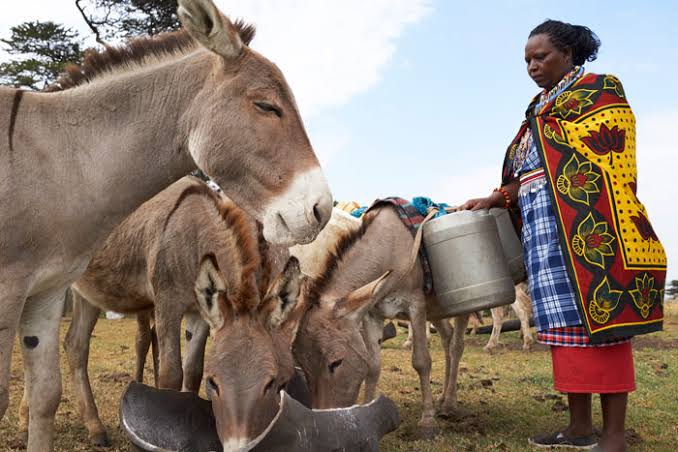ABIDJAN, July 8, 2025 — African leaders have taken a strong stand against the donkey skin trade, offering renewed hope for communities and animals alike, following the Abidjan Declaration made at the recent Pan-African Donkey Conference [PADCo] in Côte d’Ivoire.
At the conference, The Donkey Sanctuary, a charity campaigning to end the slaughter of donkeys for the skin trade, unveiled compelling new evidence in its latest report, Stolen Donkeys, Stolen Futures, highlighting the devastating impact the trade has on Africa’s women and children.
The Abidjan Declaration reaffirms African leaders’ support for the African Union’s 2024 decision to ban the slaughter of donkeys for their skins and to develop a continent-wide strategy to protect the animals’ welfare.
A new strategy
As part of the declaration, African ministers expressed their backing for a Pan-African donkey strategy developed by the African Union’s Inter-African Bureau for Animal Resources [AU-IBAR), in collaboration with The Donkey Sanctuary and other members of the International Coalition for Working Equids [ICWE].
The strategy seeks to “protect the donkey, promote its welfare and sustainable utilisation in Africa, and safeguard its populations and the vulnerable communities that depend on them.”
The declaration goes further, urging governments to take immediate action by refusing to issue new licences for donkey slaughterhouses, revoking or suspending existing ones, and promoting cross-border collaboration to improve surveillance at ports and borders often used for donkey smuggling.
Protecting donkeys and livelihoods
Each year, at least 5.9 million donkeys are slaughtered for their skins to produce ejiao — a traditional Chinese medicine made from donkey gelatine.
Soaring demand has decimated China’s own donkey population, pushing the industry to exploit Africa’s donkeys and the communities who rely on them for transport, farming, and livelihoods.
The Donkey Sanctuary’s new report exposes the devastating consequences of this demand, particularly on African women and children. The report also puts forward a series of recommendations and a call to action for governments across Africa and beyond to take decisive steps to end what it describes as a human and animal welfare crisis.
This landmark declaration by African leaders represents a significant victory in the campaign to stop the slaughter and a major step forward for the welfare of donkeys and the people who depend on them.
A Turning point
Niall Duffy, Executive Director of Policy and Profile at The Donkey Sanctuary, who spoke at the conference’s closing ceremony, said:
“Our latest report reveals the donkey skin trade’s devastating impact, not just on the animals, but on the women and children who rely on them most.
And yet, there is hope. Nation after nation at the Abidjan conference voiced their resolve to stop this trade.
“The Abidjan Declaration is more than just a reaffirmation of the African Union’s 2024 commitment. It reflects a deep and renewed commitment from the member states present, offering direction and momentum for future discussions with all member states to protect a precious resource and create a better world for donkeys.”
Otieno Mtula, Regional Campaigns Manager for Africa at The Donkey Sanctuary, added: “We have been part of the technical working group behind PADCo and the development of the Pan-African donkey strategy.
“Our efforts have paid off with robust recommendations that set out clear steps for an Africa-wide approach. Once approved by the African Union’s Specialised Technical Committee of Ministers, the strategy will be presented to the Heads of State for final endorsement in February next year.”
In Uganda, donkeys in Uganda are primarily found in the northeastern region, especially in areas with poor road networks, where they serve as a vital and affordable means of transport. They are used for carrying goods, people, and even for plowing, and are particularly important in communities where other forms of transport are limited.
The world donkey population is about 44 million, half of which is in Asia, one quarter in Africa, and the rest in Latin America. In Africa, Ethiopia, with 7.1 million, has the largest donkey population. The population of donkeys in Uganda was 63,000 by 2021, according to livestock census.
https://thecooperator.news/lucrative-secret-trade-threatens-donkey-populations-in-karamoja-turkana/
Buy your copy of thecooperator magazine from one of our country- wide vending points or an e-copy on emag.thecooperator.news
